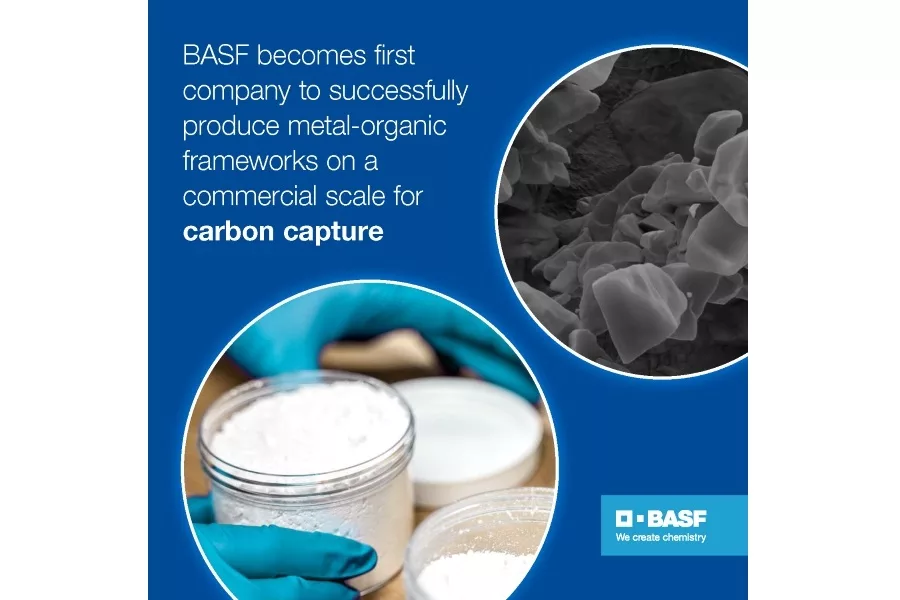BASF Produces Metal-Organic Frameworks For Commercial Scale Carbon Capture

Photo courtesy of BASF.
BASF announced it has produced metal-organic frameworks (MOFs) on a production scale of several hundred tons per year. MOFs are highly crystalline structures with nanometer-sized pores and a large surface area. This structure offers a high capacity for the storage of carbon dioxide (CO2), the dehumidification of air for room climate control and the adsorption of the greenhouse gas methane. BASF has developed expertise on the scale-up and production of MOFs, can tailor MOFs to customers’ needs and specifications and has the capacity to produce customized MOFs for various applications and industries.
A first project has now been successfully completed for Canadian carbon capture and removal solutions provider Svante Technologies Inc. (Svante). The interdisciplinary BASF team of researchers, scale-up experts and engineers worked collaboratively on the scale-up by converting the Svante lab recipe into a safe plant procedure for large scale production. The MOFs produced will be used as solid sorbents for carbon capture projects. The collaboration with Svante will help to significantly reduce carbon emissions in various industrial sectors including hydrogen, pulp and paper, cement, steel, aluminum and chemicals.
“We are very happy to partner with Svante and to be able to apply our scale-up and production expertise,” said Detlef Ruff, senior vice president, process catalysts at BASF. “We are proud to be the first company to produce MOFs successfully on a large commercial scale for carbon capture. The successful effort of our teams in R&D, scale-up and production puts us in a favorable position. Today, we have access to new business opportunities with a strong focus on sustainability based on our MOF production capabilities. MOFs have the potential to be a step change in our efforts to reduce CO2 emissions and can bring our partners and their customers closer to reaching their net zero targets.”
For more information, visit: www.basf.com.
Looking for a reprint of this article?
From high-res PDFs to custom plaques, order your copy today!





